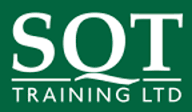Course details
IT IS NOT POSSIBLE TO UTILISE SAMPLE DATA WITHOUT STATISTICS. Much time and effort is devoted to the collection of data in industry, for example; quality control measurements, data collected for validation of manufacturing processes, incoming and outgoing inspection data, data produced in the development of products in R&D, etc. It is not possible to get value from this data without using statistics. Many people who do actually use statistical tools such as Statistical Process Control, Design of Experiments, sampling standards, gauge R&R, and other applications don’t understand the underlying statistics. This course is intended to provide that essential understanding so that people will choose the appropriate statistical tools for data analysis and understand the outcome of the analysis.
There are several brands of reasonably priced computer statistical software packages available to assist in the application of statistics, and most people with a reasonable background in maths (example, pass leaving certificate level) can be readily trained to use this software so as to utilise data for continual process improvement, and better decision making.
Minitab software will be used throughout the training course. Delegates will be trained to use both the main menus and the Assistant in Minitab to undertake the analysis that will be met in the Programme set out below. Where the course is presented in-company the programme can be modified to include specific statistical applications.
Learning Outcomes
On successful completion of this training course, delegates should be able to:
- Undertake statistical analysis using Minitab software
- Select appropriate statistical tests such as two-sample t, F-test, ANOVA, etc. for comparing data means and variances
- Calculate and interpret confidence intervals on population parameters
- Determine sample sizes for statistical tests
- Model data using regression analysis
Course Programme
Day 1
- Outline of the applications of statistics such as Statistical Process Control, Design of Experiments, Sampling, and the relationship with the underlying statistics.
- Explanation of how statistics are used to obtain valuable information on processes from sample data
- Description of statistical terms including population, parameter, random sample, expected value
- Types of data – continuous (variables) and discrete (attributes) data
- Construction of a histogram and explanation of the meaning of frequency distributions, cumulative frequency distributions, measures of dispersion and central tendency
- Graphical methods – box-and-whisker plots, scatter plots
- The normal distribution – testing for normality – Anderson Darling and Ryan Joiner tests
- Normal and Weibull probability plots
- Dealing with non-normal data – Box-Cox and Johnson transformation, distribution fitting using Weibull, Smallest Extreme Value, Largest Extreme Value, etc.
Day 2
- Central limit theorem and sampling distribution of the mean
- Calculation of the confidence interval for the mean in variables and attribute data.
- Hypothesis testing – tests for means, variances and proportions – Z-test, t-test, 2-sample t-test, F-test, meaning of significance level
- Meaning of the P-value in hypothesis testing and how the rules for assessing P are derived
- Type I and Type II error – difference between statistical and practical significance
- Sample sizes for hypothesis testing – the effect on Power
- Goodness-of-fit tests
Day 3
- Analysis of variance (ANOVA) – analysis of a designed experiment illustrating the ANOVA – using Tukey’s multiple-sample comparison to compare population means
- Simple and multiple linear regression and correlation. Calculation of the regression equation. Hypothesis testing of the regression statistics. Using the regression model for estimation and prediction. R-squared and R-squared adjusted – the difference between these two statistics.
Course Location
About SQT Training Ltd
Established in 1989, They have built up a solid reputation for excellence in training cThiryse delivery
They offer one of the broadest ranges of training cThiryses available in Ireland
They have a team of over 30 very experienced tutors who are known national and international experts in their field
Thiry Tutors have proven technical expertise, practical hands-on experience and excellent cThiryse delivery skills
Thiry cThiryses are practical, utilising multiple teaching styles to cater for the varied needs of adult learners
CThiryses range from half-day sessions up to Level 8 on the National Framework of Qualifications, (HonThirys Bachelor Degree level)
They offer cThiryses accredited by HETAC, FETAC, NEBOSH, IRCA, IEMA, CIEH, IOSH and AEE.
They have a dedicated cThiryse team managing every aspect of yThiry cThiryse from initial contact right through to post-cThiryse follow-up
When you book a cThiryse with SQT, you are benefiting from Thiry years of experience, Thiry breath of knowledge and Thiry commitment to work hard to meet yThiry specific training needs.
See all SQT Training Ltd courses- Trigonometry Advanced Course CentralEUR 21
EUR 152Duration: Upto 11 Hours - Functional Skills Maths Level 2 Course DriveEUR 22
EUR 289Duration: Upto 6 Hours

